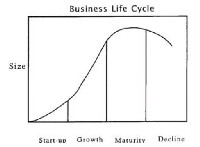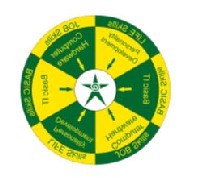| The Marketing Challenge at TATAhaat Anjali Katoch akatoch@tarahaat.com A sunny Sunday morning in June found the inhabitants of six villages gathered in Maur Mandi, a typical small town in Punjab, to witness the grand finale of the TARAhaat Cricket Cup. The six villages had sent teams to contest in the tournament. As the match progressed, the crowd increased and as the last over approached, the crowd was cheering as it does for India in a World Cup Series! The excitement persuaded the sarpanch of one village to offer a cash reward to the winning team. As the crowd from the six villages left in the evening, one thing was certain… they all would certainly know about the TARAkendra in Maur Mandi. At the end of the day, it was money well spent and a marketing exercise successfully implemented. The total cost of the two day tournament was only Rs.2,500. The goodwill and brand awareness generated was invaluable. The event also created twenty promising inquiries for the student referral programme.
This is an example of a completely localised marketing outreach activity, where no more than two banners were put up at each village and the news of the event spread by the word of mouth, Gurudwara announcements and the Sarpanch’s support. However, the T-shirts and bags given to the teams, the leaflets distributed at the grounds, the banners and the canopy all had the same look and feel - the TARAhaat logo and the specific yellow and green brand colours. Herein lies the challenge of marketing TARAhaat –promotions need to be local and customised while the sanctity of the brand must be assured across the network. All TARAkendras, be it Nurmahal in Ludhiana or Orchha in Tikamgarh must have the same look and feel and must evoke the same values of warmth, trust and efficiency. The Marketing VisionTARAhaat is committed to creating a strong and robust brand in its rural markets. The key marketing objectives are inspired to achieve this goal and aim to:
The Marketing StrategyThe focus of marketing initiatives at TARAhaat is to support the entrepreneur through their business life cycle, helping them to derive the maximum benefit from their investment. Relevant support is provided at each life cycle stage through a series of packages and programmes.
|
| ◘ | Outdoor signages |
| ◘ | Branded boards for the inside of the centre |
| ◘ | Information posters and laminated price list |
| ◘ | Marketing collateral |
| ◘ | Wall mounted collateral dispensing units |
| ◘ | TARAhaat branded items like pens, clocks, bags and T- shirts |
Each franchise is also equipped with the Do It Yourself (DIY). The DIY Kit provides franchisees with templates to create their own marketing collateral Kit for local marketing and outreach initiatives. To preserve the branding norms of TARAhaat, it is mandatory for franchisees to use only the DIY templates. The DIY Kit includes templates for:
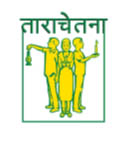 |
| ◘ | Invitations |
| ◘ | Leaflets |
| ◘ | Banners |
| ◘ | Posters |
| ◘ | Wall Paintings |
In addition to the two Kits, support is also given by means of a customised press releases and cable scroll advertisements.
The Life Cycle Stage: Early Days : The Need: Relevance
After the hype created from the launch of the centre, the need is to communicate the relevance of the TARAkendra’s services to the community and create a familiarity and comfort level with them. At this stage, mediums such as road shows and community programmes help to create that vital personal link with the customer.
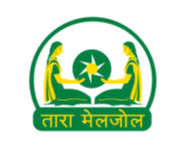 |
Road shows are a ‘mobile visibility vehicle’ which create dramatic visibility for TARAhaat in the catchments areas. They build awareness amongst a large number of potential customers at one place and accelerate the momentum for on-spot registrations and enquiries outside the TARAkendra. To make the Road shows efficient, easy to assemble TARAhaat branded canopies are available at all TARAhaat Territory Offices for TARAkendras. A pool of games including a TARAhaat branded dart game, one minute mind games and tangram puzzles are used to generate higher footfalls at the roadshows. Of these, the dart board game is a particular crowd puller with the young men!
Community initiatives include conducting health camps in schools and sponsored events, such as the Cricket Cup mentioned earlier, have high visibility and impact for reasonable investments. The Health Camps build credibility and trust with the school authorities and earn the recommendation of opinion leaders like Principals and teachers for the TARAkendra’s services.
An example of a community programme is TARAgroups. It has been created with the objective to project TARAkendra as a safe and trusting environment where the community can be introduced to technology and its benefits in a relaxed atmosphere so as to gain acceptability and credibility quickly.
TARAgroups are essentially common-interest groups from within the community who meet weekly at the centre to interact and exchange ideas, learn new information and undertake activities of their interest. Currently, Mel-jol, a forum for young women, and Chetna-a student empowerment platform are operational. The aim is to form more common interest groups such as a science group, a literature group and a retired people’s group.
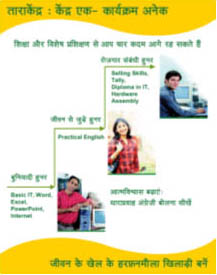 |
The Life Cycle Stage: Growth
The Need: Advantage
After this stage, the need of the business is high footfall and conversion at the TARAkendras. The aim here is to provide TARAkendra-centric promotion packages that build high customer traffic at the centre, require a degree of participation by the potential customer and convert inquiries to customers.
One such promotion organised this year has been the Jeet Sako to Jeet Lo (win if you can in Hindi) promotion. The JSTJL promotion targets 12- 22 year olds and is a series of games including a Song Contest, Quiz, Story writing and collage making. These attractively packaged competitions have proven to be a huge success and the promotion has been able to double or even treble the membership base of the centre.
The TARAkendra centric promotions have been designed in such a manner that they can be organised by a kendra many times in a year on a stand alone basis. There are standard templates for all marketing collateral, cable ads etc. required to run this promotion.
The Life Cycle Stage: Established The Need: Conversion
At this stage, the kendra has a large database of members and a fair number of customers. The need is to create a referral route for the business and reward loyal customers. One of the ways to capitalise on the large number of members generated by promotions, roadshows, community initiatives is to incentives programme registrations.
 |
Dosti Ke Dum Par, Seekho Jam Kar is a referral programme. This programme is targeted at the existing members in the 14-24 age group. Recognising the fact that peer acceptance and approval carry weightage in this age group, friends are encouraged to register in groups and all members of the group are rewarded.
A loyalty programme is also being developed, where a customer gets reward points every time he/she utilises our services and products. These reward points can be redeemed for attractive gifts.
Conclusion
The TARAhaat franchise needs high impact, low cost, easy to implement marketing outreach programmes. The marketing team continually innovates and creates programmes that help the franchise network to mobilise high footfall at the centres. These centres, with a wide reach in the community, then become a valuable network not only for TARAhaat, but NGOs, corporate and government organisations as well.q
